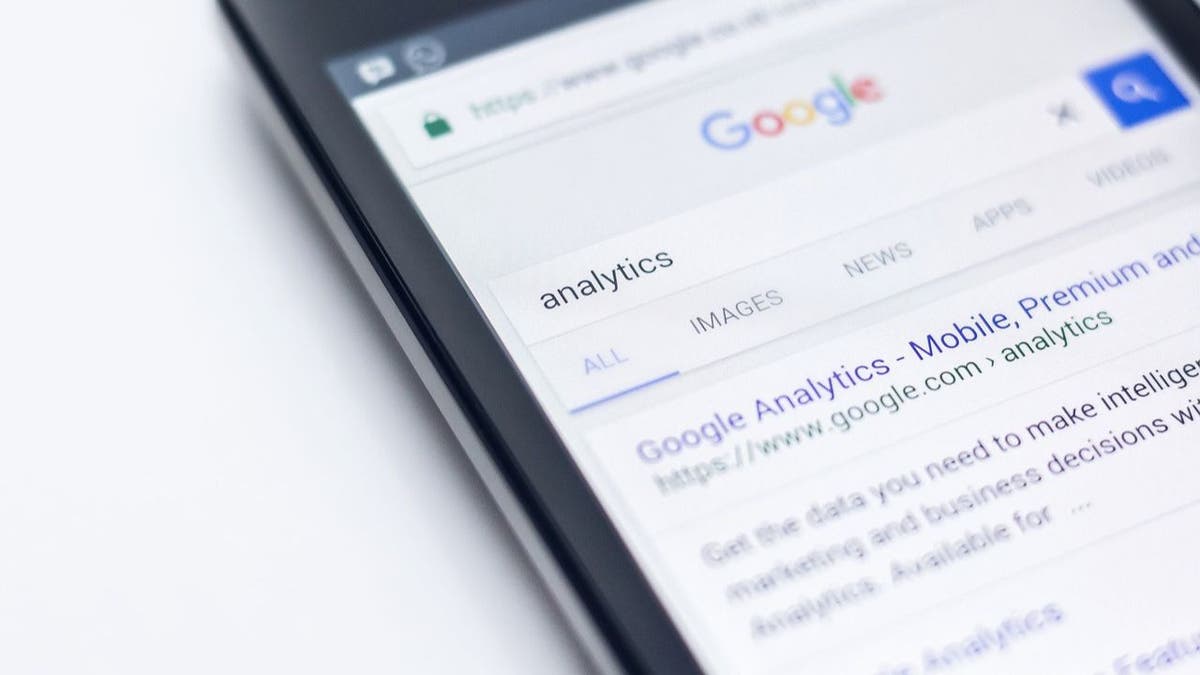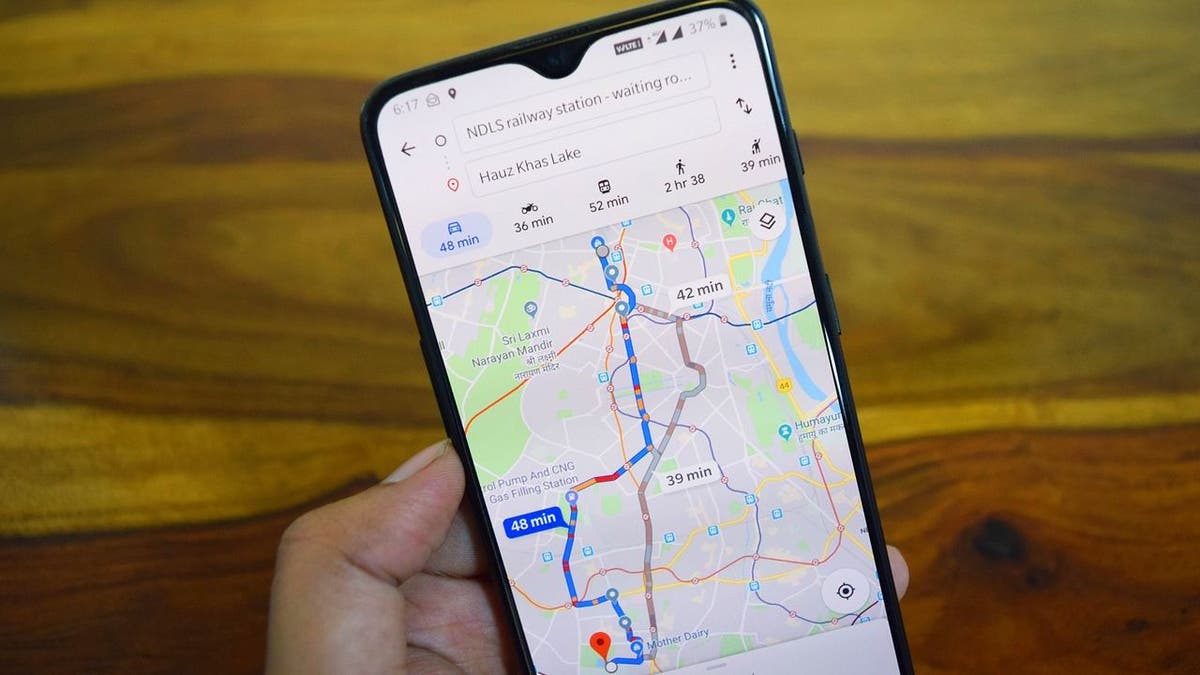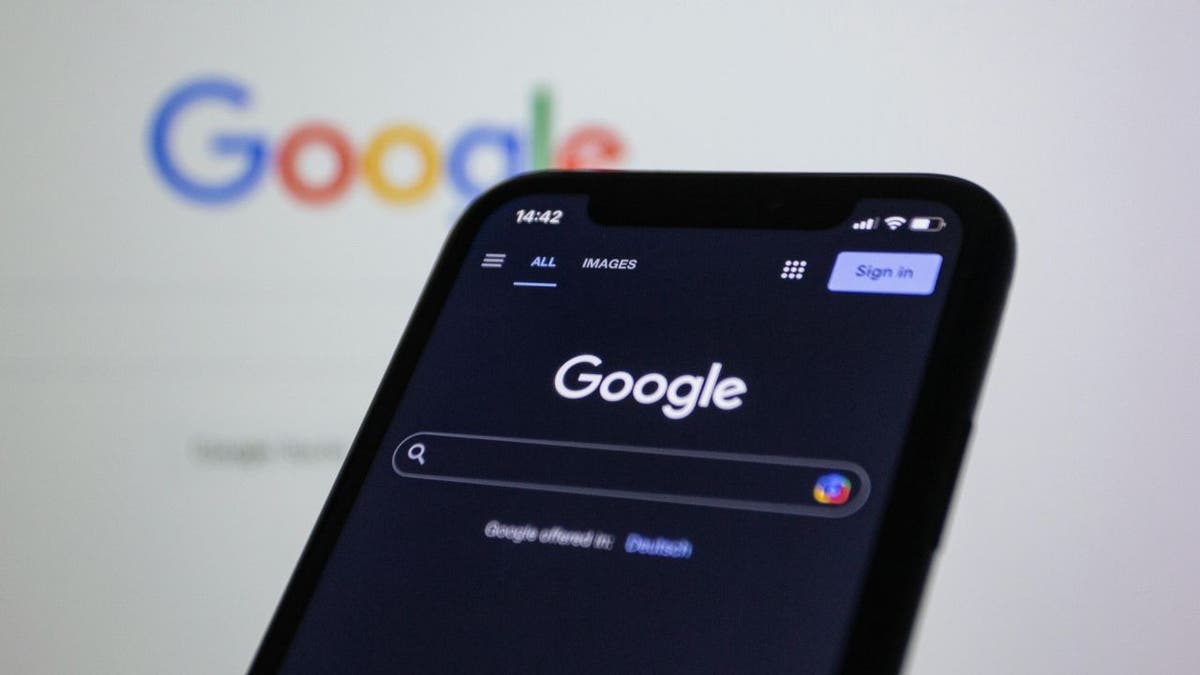Call them mistakes, mishaps or reckless, a pattern of serious privacy breaches have been leaked from the big tech giant according to Google employee reports.
In an era where data is as precious as gold, even giants like Google are not immune to pitfalls in handling the vast reservoirs of personal information flowing through their systems.

Microscope viewing Google Search (Kurt “CyberGuy” Knutsson)
Range of incidents
A six-year span of internal Google reports, unearthed by 404 Media, exposes a troubling array of privacy breaches affecting everything from children’s voice data to the home addresses of unsuspecting carpool users.
GET SECURITY ALERTS, EXPERT TIPS – SIGN UP FOR KURT’S NEWSLETTER – THE CYBERGUY REPORT HERE
These breaches include making YouTube recommendations based on users’ deleted watch histories. These issues, though not widely known or impactful on a large scale, reveal the complex challenges faced by one of the tech world’s behemoths.

Google search on Macbook Pro (Kurt “CyberGuy” Knutsson)
BEWARE OF THIS MCAFEE GOOGLE CHROME AD SCAM
Google’s privacy blunders exposed
This internal database, not previously exposed to the public eye, catalogs various incidents ranging from trivial mishaps – like an inadvertently sent email containing sensitive personal information – to major security lapses, including significant data leaks and even potential raids on Google’s own offices. The company’s system allows employees to rank these issues by severity, with the term “P0” indicating the most critical.

Google Analytics displayed on tablet (Kurt “CyberGuy” Knutsson)
HOW GOOGLE’S DATA CAN MAKE YOU A SUSPECT IN CRIME YOU DIDN’T COMMIT
Google Street View mishap
Among these incidents, a notable mishap in 2016 highlights the complexities of managing automated data collection. Google Street View, known for its panoramic views of streets around the world, accidentally transcribed and stored vehicle license plate numbers due to its text-recognition algorithms mistaking them as regular text.
“As a result, our database of objects detected from Street View now inadvertently contains a database of geolocated license plate numbers and license plate number fragments,” a Google employee said. This error, they assured, was accidental and that the data has since been eliminated.
WHAT IS ARTIFICIAL INTELLIGENCE (AI)?

Google Maps (Kurt “CyberGuy” Knutsson)
GOOGLE FINALLY ADMITS DATA COLLECTION IN CHROME’S INCOGNITO MODE
Socratic.org data exposure
Another significant breach involved the exposure of email addresses from over a million users of Socratic.org, an educational platform Google had acquired.
This breach, which left sensitive data like geolocation information and IP addresses accessible via the platform’s page source, lingered undetected for more than a year, affecting numerous users, including children.

Google search displayed on laptop (Kurt “CyberGuy” Knutsson)
Google’s response to CyberGuy
The revelation of these issues comes from an anonymous tip received by 404 Media, whose authenticity was subsequently confirmed by Google itself. In response to the findings, a Google spokesperson said, “At Google, employees can quickly flag potential product issues for review by the relevant teams. When an employee submits the flag, they suggest the priority level to the reviewer.”
GET FOX BUSINESS ON THE GO BY CLICKING HERE
They added, “The reports obtained by 404 are from over six years ago and are examples of these flags – every one was reviewed and resolved at that time. In some cases, these employee flags turned out not to be issues at all or were issues that employees found in third-party services.”

Google search on smartphone (Kurt “CyberGuy” Knutsson)
Proactive measures to take in the wake of Google’s data dilemmas
In an age when digital privacy is under constant threat, taking proactive steps to protect your personal information has never been more imperative, especially in light of recent revelations about privacy breaches at tech giants like Google.
1. Create strong passwords: Use complex passwords and change them regularly. Avoid using the same password across multiple sites. Consider using a password manager to generate and store complex passwords.
2. Enable two-factor authentication: Wherever possible, use two-factor authentication to add an extra layer of security to your accounts.
3. Be wary of phishing scams: Learn to identify suspicious emails and messages that may attempt to steal your personal information. The best way to protect yourself from clicking malicious links that install malware that may get access to your private information is to have antivirus protection installed on all your devices. This can also alert you of any phishing emails or ransomware scams. Get my picks for the best 2024 antivirus protection winners for your Windows, Mac, Android and iOS devices.
4. Use secure networks: Avoid using public Wi-Fi for sensitive transactions. Consider using a VPN for better security. A VPN can protect you against being tracked and your potential location being identified on websites you visit. Many sites can read your IP address and, depending on their privacy settings, may display the city from which you are corresponding. A VPN will disguise your IP address to show an alternate location. For the best VPN software, see my expert review of the best VPNs for browsing the web privately on your Windows, Mac, Android and iOS devices.
5. Invest in data removal services: While no service promises to remove all your data from the internet, having a removal service is great if you want to constantly monitor and automate the process of removing your leaked information from hundreds of sites continuously over a longer period of time. Check out my top picks for data removal services here.
6. Manage your social media settings: Make your social media accounts private and be cautious about the information you share online.
7. Update your devices: Keep your software and devices updated to protect against the latest security threats.
8. Review permissions: Regularly review the permissions you’ve granted to apps and websites, and revoke any that are unnecessary.
Kurt’s key takeaways
This saga of accidental data collection and privacy lapses serves as a cautionary tale of the potential perils lurking in the vast amounts of data collected and processed by technology companies today. Big tech companies’ default mission is to take as much as they want from us to make a buck. You need to take a more proactive step in protecting your personal privacy and security. As Google continues to navigate these turbulent waters, the world watches closely, reminded of the ongoing need for stringent data protection measures in the digital age.
CLICK HERE TO GET THE FOX NEWS APP
Considering Google’s recent privacy breaches, what measures should the company implement to enhance the protection of user data and rebuild trust with its users? Let us know by writing us at Cyberguy.com/Contact.
For more of my tech tips and security alerts, subscribe to my free CyberGuy Report Newsletter by heading to Cyberguy.com/Newsletter.
Ask Kurt a question or let us know what stories you’d like us to cover.
Follow Kurt on his social channels:
Answers to the most asked CyberGuy questions:
Copyright 2024 CyberGuy.com. All rights reserved.


